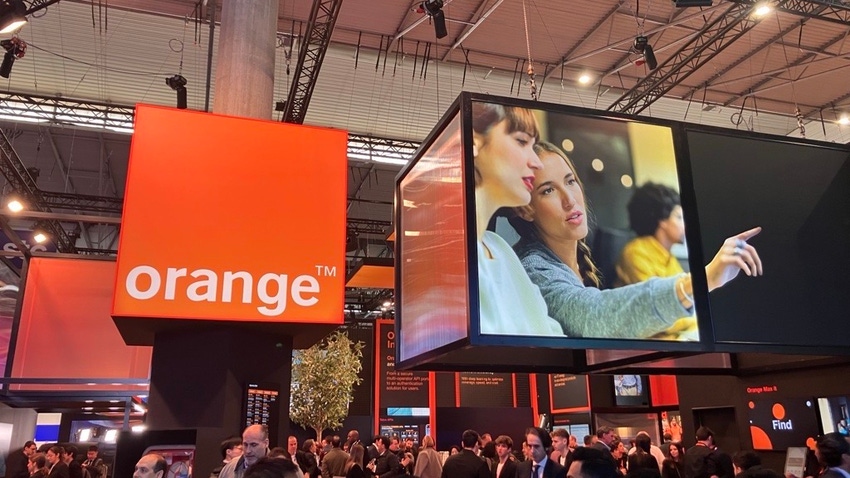MásMóvil merger marks 'beginning of a new story' for Orange in Spain – Europe CEO
Orange's CEO for Europe, Mari-Noëlle Jégo-Lavessière, notes that while the merger in Spain with MásMóvil will not transform the country's landscape, it will give the operator the scale it needs.

After two years of waiting, Orange finally got the approval from the European Commission (EC) last month to merge with MásMóvil in Spain. While an approval from local authorities is still pending, Light Reading had the chance to speak with Orange's executive vice president and CEO for Europe (outside of France), Mari-Noëlle Jégo-Lavessière, and the CTO for Europe, Arnaud Vamparys, to ask about their thoughts on the merger, as well other topics like network APIs, regulation and Orange's broader strategy in Europe.
Jégo-Lavessière said the merger in Spain is the "beginning of a new story" for Orange in Spain, adding, "We are going to create the number one in volume in Spain, number two in value."
Speaking about the discussions with the European Union, she said, "Two years is quite long to be honest," while adding that talks had been constructive. The scale of the deal will bring network synergies and leave the combined company with a substantial customer base, she said.
Remedies imposed by the EC will, nevertheless, establish a (new) fourth operator in the form of Digi. As Light Reading has written previously, some analysts doubt if this four-operator structure is sustainable in all markets.
During a joint press conference by Europe's four biggest telcos, Deutsche Telekom's (DT) CEO Timotheus Höttges argued passionately that bringing in a fourth operator is a mistake that European regulators keep repeating.
Asked about her thoughts on the EC maintaining a four-operator structure in the country, Jégo-Lavessière was more measured. "It's a huge step, of course, for us, but it's not really transforming the landscape of Spain," she said, noting also that MasMóvil was relying on network roaming deals prior to the merger.
Shifting regulatory landscape
The approval was not the only recent important piece of news regarding telecom regulation in Europe. In the run-up to MWC, the EC published a white paper entitled "How to master Europe's digital infrastructure needs?" that proposes different approaches to overcoming fragmentation in the sector to better support the block's economy and serves as the basis for the stakeholder consultation currently underway.
The main issues it addresses include ensuring infrastructure readiness for on-device edge technology and AI processing in collaborative computing environments; completing the digital single market and ending fragmentation across the block; and ensuring ongoing security of communications.
While stressing that the white paper is merely a discussion paper, when addressing the technology aspects, Jégo-Lavessière said, "I fully share that we need to have a European ecosystem, the question is how we can, depending on their scenarios, how we can move forward." She said Orange will engage in discussions but stressed that it will need champions.
When it comes to completing the digital single market, Jégo-Lavessière said that there are many positive points. "On regulation, I think it's nice for us to make sure we can limit the ex ante regulation to what is strictly necessary and to go to ex post everywhere else," she said.
On the topic of digital market regulation, she said, "I think that we need to scale in Europe, by definition, and the fact that we are highly fragmented is not bringing value to us." She added that, "if we can be a little more organized, standardized around the EU, it goes in the right direction."
"We need to see how we can also be as attractive as other telcos because investors are also saying that operators in Europe are not very appealing so let's move forward in that direction," she argued.
Last year, one of the main talking points for European telcos was the (somewhat controversial) issue of fair share, which will be passed on to the next Commission. Nevertheless, Jégo-Lavessière insisted that elements of what the telcos were asking for have made it into the document.
"It will not be called fair share, and we're not asking for regulation, we were asking more for the capability to have commercial discussions and to make sure that we can try to meet the digital act objectives and to make sure that Europe is not lagging behind other countries," she said.
API days
Currently, telcos in Europe and elsewhere are pinning some of their hopes for 5G monetization on network APIs – a tool that should expose network capabilities to developers.
Orange's CTO for Europe Arnaud Vamparys highlighted the company's recent announcement in Spain, where Orange has teamed up with Telefónica and Vodafone to jointly release two APIs standardized under the Camara platform.
Jégo-Lavessière said success in Spain was due to the cooperation between the three telcos and that the company is in discussions with operators including Vodafone, Telefónica and DT to launch APIs in more countries.
"Together with DT, we will be ready to do it in Poland because if you take Orange and DT in Poland, it has an impact on the market," she said. Vamparys added, "If you have two, three operators in the same country, then the momentum is there."
Jégo-Lavessière said that "it does not make sense to be the first but to be scalable because it does not bring value. This is the reason why we need to have a significant momentum with others in the market and then the others will follow. So this is ahead of us."
When asked to say precisely how much value APIs could bring from a sales perspective, however, she said "it is too early to give figures." Both she and Vamparys, meanwhile, noted that APIs will have an impact on both direct and indirect sales.
AI everywhere
Together with APIs, generative AI was another technology that took central stage at MWC. Vamparys said, however, that even though it can be used to help human agents be more effective, it is just a tool that is complementary to other solutions applied in this area.
Jégo-Lavessière pointed to Orange's Customer Value Management program, through which the company is trying to use data more efficiently to assess its relationship with a customer as a whole. The system could, for example, provide recommendations for call center agents based on a client's history, making call centers more accurate.
AI of the non-generative variety is, meanwhile, part of the company's efforts to cut costs. Orange is currently pursuing a goal of reaching €600 million ($US656 million) in savings by 2025, and Jégo-Lavessière says the company remains on track.
Together with "mutualization" – whereby resources in one market address several other countries – she thinks automation and AI will have a important roles to play in future.
"We have a lot of people taking care of the network. We need to make sure that with AI ... with softwarization, we are moving forward up to a fully automated network," Jégo-Lavessière said, admitting, however, this is not a quick change. "It isn't maybe for tomorrow morning, but maybe for the day after," she joked.
Adjacent markets
Asked if Orange still sees opportunities in adjacent markets in Europe, Jégo-Lavessière said it is pursuing opportunities in several verticals.
One of these is Orange Cyberdefense, its cyber security unit, which she calls a key differentiator for the company. At the moment, Orange is investigating how it can extend the solution to the entire market, starting with B2B relationships with large companies.
With smaller companies, meanwhile, she notes it is crucial to make sure solutions are simplified and plug-and-play.
Orange is also interested in addressing the B2C segment. Jégo-Lavessière said the offer could be relatively simple, focusing on use cases such as checking whether a text message or email is malicious. This will be a priority in the coming years, she said.
About the Author(s)
You May Also Like




_International_Software_Products.jpeg?width=300&auto=webp&quality=80&disable=upscale)







